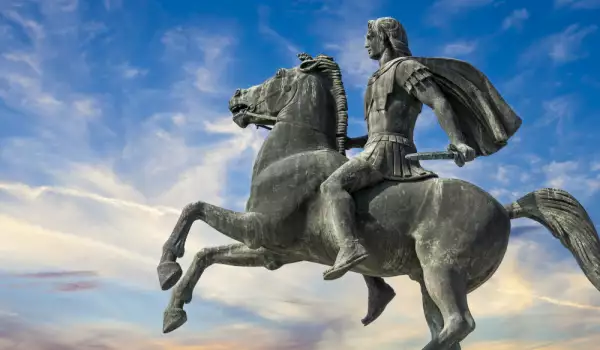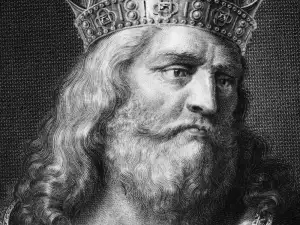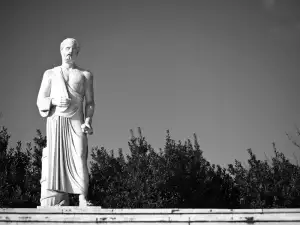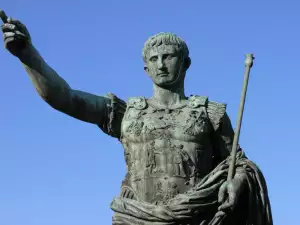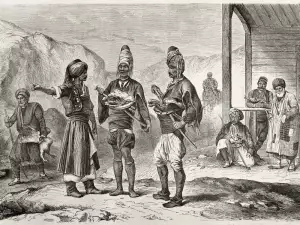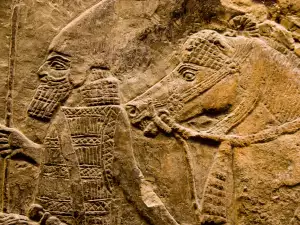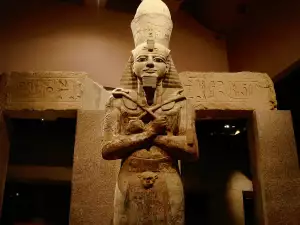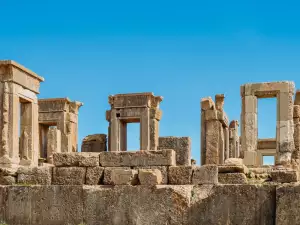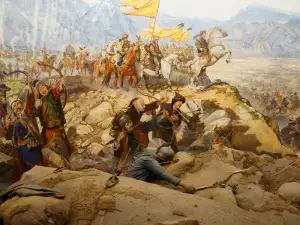History knows many great generals and military geniuses, but the championship among all falls to Alexander the Great, quite deservedly called that. In just 12 years, he managed to build a true world empire that included territories in all directions of the world and although he fought countless battles, he never once suffered defeat.
Not a single lost battle and personal participation in each of them - this creates the incredible fighting spirit of his army. Thanks to it Alexander remains undefeated. His abilities as a general have long been studied in great detail. His place at the head of history's most capable rulers is forever preserved.
Origins and early years of Alexander
On the sixth day of the month Hecatombeon according to the ancient Greek calendar, a son was born to the Macedonian king Philip of Macedon and his wife Olympias, whom they named Alexander. This date is supposed to correspond to July 20 in the Gregorian calendar and the year is 356 BC. The future ruler of the world was born in the city of Pella, the capital of ancient Macedonia. According to the traditions of the ancient Greeks, the line of the future king was descended from the hero Heracles, from which line was also the first king of the ancient state of the Macedonians.
From early childhood Alexander the Great was preparing for a future ruler, therefore he was familiar with the intricacies of diplomacy, politics and war. His teachers were Leonidas, Lysimachus and Aristotle, from whom he received a higher education on the Greek model.
In his early teens, only 16 years old, Alexander fulfilled his role as king in Macedonia while his father laid siege to Byzantium and had to put down a rebellion that the Medes raised. Two years later, he commands part of the Macedonian army during a battle and shows both his fearlessness and his skills as a general.
Alexander the Great's relationship with his father worsened after Philip II's fifth marriage and disputes over the succession to the throne. The reconciliation between the two took place on the occasion of the wedding of one of Alexander's sisters, Cleopatra and he returned to Pella for the event. During the wedding celebrations, Philip II was assassinated by conspirators. Several other relatives of Philip claim the throne, but the Macedonian army, which is already well acquainted with Alexander, declares him king of the Macedonians. He is 20 years old at that time.
Reign of Alexander the Great
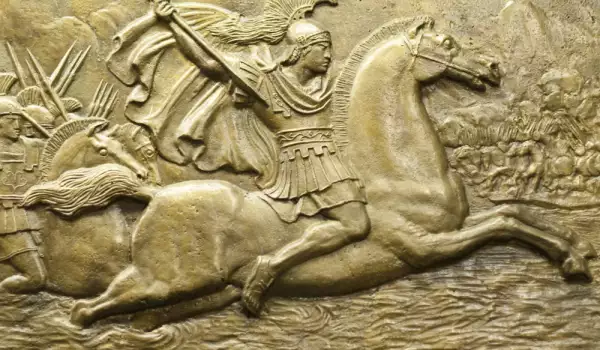
At the beginning of his reign, Alexander the Great dealt with the conspirators who killed his father and potential challengers to his power. Among those executed was the husband of one of his sisters, Kinana. In order to attract the upper strata of society and the people to his side, Alexander canceled a number of taxes.
His next step was an alliance with the Greeks, in order to have a peaceful Greek state behind him and he marched against the tribes of the Thracians and Illyrians, who revolted when they heard of the death of Philip II. The campaign against them was unsuccessful and the young ruler made peace with the tribes.
A little later a revolt also broke out in Thebes and the insurgents called on all Greece to support them. However, the Greeks decided to observe the development of events and did not rise up. Then Alexander quickly moved his troops from Illyria to Thebes, besieged the city, took it by storm, destroyed it and sent the population into slavery. There is turmoil in Greece over the events at Thebes and the townspeople rush to acknowledge their submission to Alexander. After consolidating his power, the new Macedonian ruler decided it was time to carry out his father's plan to march against Persia.
Campaigns of Alexander the Great
The Persians and Greeks are old enemies and have been at war more than once. During the Greco-Persian Wars Xerxes I destroyed many shrines in Ancient Greece. In the 4th century BC, Persia began to decline. The army is weak and consists mainly of Greek mercenaries rather than local recruits. The ruler Artaxerxes III failed to strengthen the state and was killed. He was succeeded by Darius III.
Philip II was planning a campaign against Persia, but his assassination delayed this plan. Alexander undertook the implementation of the plan and in 334 BC, at the head of an army of Macedonians, Greeks and Thracians, he marched towards Persia.
The Persian king makes several fatal mistakes when he learns of Alexander the Great's campaign. The first is that he made no attempt to stop the troops before they entered his territories and the second is that he did not accept the plan of the Greek general Memnon to resist Alexander the Great. The Persians decided to meet the Macedonian army in a battle that would decide the victory.
The Persian army is stationed on the banks of the Granik River. The Macedonian troops cross the river, which is the beginning of the battle.
Miscommanding the Persians led to their defeat.
After his victory at Granicus, Alexander marched along the coast of the Aegean Sea. The cities in Asia Minor they surrendered the power to the Macedonian king themselves, and those who resisted were besieged and captured.
The Persian king Darius III sets out with his army to meet Alexander the Great again. The armies meet at the city of Isa. Victory again goes to Alexander, who captures Darius's family as well.
The route of the victor continued south to Phoenicia, where most of the cities submitted to him willingly and those that resisted were besieged, destroyed and their populations enslaved.
The Persian king Darius offers peace to Alexander. He agrees to cede to him all the territory as far as the Euphrates, to sign a perpetual peace with the Macedonian ruler and to give him one of his daughters as a wife. Alexander the Great, however, was already planning the conquest of all of Persia.
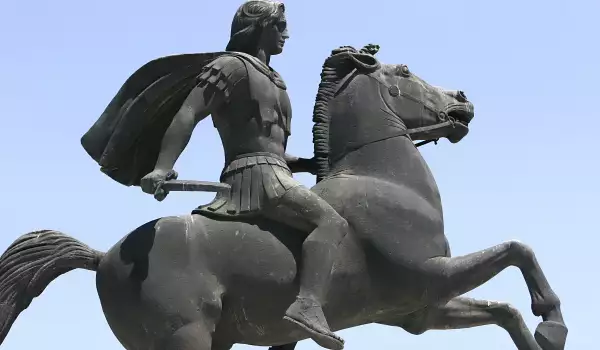
Alexander the Great continues his march to Egypt and the Persian governor there hands over power to Alexander himself. The Macedonian ruler retained Egyptian customs and rule and left a Macedonian garrison.
In 331 BC, the second stage of the conquest began. The Macedonian ruler Alexander entered the lands of ancient Mesopotamia. There the final battle takes place. The Persian forces are routed and Darius manages to escape. Alexander the Great captured the Persian cities one by one and the satraps themselves finally killed King Darius. The capital city and palace of Xerxes I were destroyed, which avenged the Acropolis in Greece.
Alexander the Great declared himself the successor of the Persian king and added the Persian territories to his empire.
Alexander the Great decided to conquer the entire civilized world and become world master. However, his troops are tired of the marches and want to return home. Rebellions break out, but they are quickly put down and the Macedonian army continues its march south.
Reaching India, Alexander the Great decided to conquer it as he learned about the riches that India possessed. In the clash with the Indian king Porus, he wins and plans to continue his march. There his troops begin to riot and do not want to continue. Alexander ends his 8-year campaign.
He decided to strengthen his empire and arrived in Babylon in 323 BC. The city is located in the middle of the vast territories it conquered. He makes Babylon his capital.
The death of Alexander the Great and the collapse of his empire
In the same year, during a feast of Alexander the Great, he fell ill and died a few days later at the age of 32. The cause of death is not clear. The guesses are several: malaria, typhoid, poison or some other disease.
Immediately after the death of Alexander the Great, disputes began between his military leaders and because of them the ruler remained unburied for seven days. Then he was embalmed and placed in a golden sarcophagus. A procession leaves from Babylon for Macedonia, but the sarcophagus is detained by the Egyptian governor, who buries it in ancient Egypt.
Rebellions broke out in the conquered territories when they learned of the ruler's death and his warlords and deputies waged struggles and disputes over his power that continued almost 40 years after his death. As a result, the empire crumbles. The ruler's heir, who was a minor and bore his father's name, was killed, along with Alexander's wife. This way the dynasty is ended, but the story of Alexander the Great and his empire remains.
